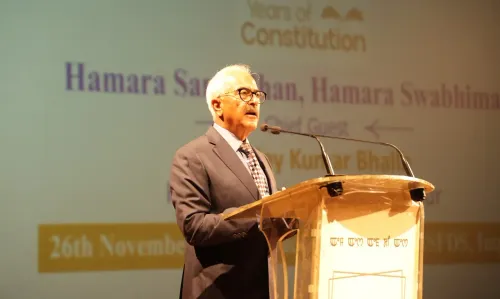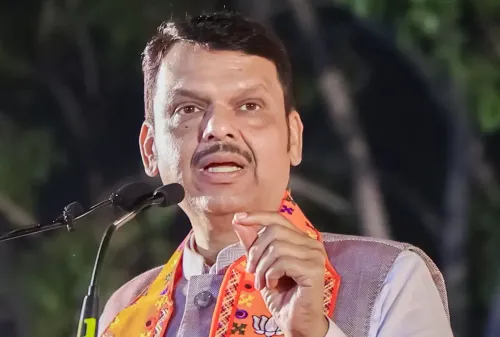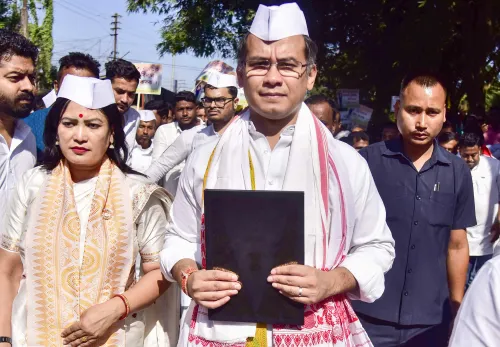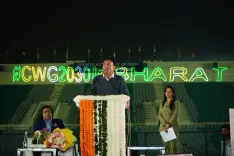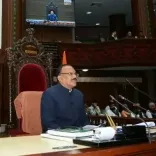Will Andhra Pradesh Maintain Its Rights Over Krishna Waters?

Synopsis
Key Takeaways
- Andhra Pradesh asserts its rights over Krishna River water.
- KWDT-II discussions are critical for state interests.
- Effective water management strategies are being implemented.
- Groundwater levels are improving across the state.
- The Polavaram project is on track for completion.
Amaravati, Nov 26 (NationPress) The Chief Minister of Andhra Pradesh, N Chandrababu Naidu, emphasized on Wednesday that the state will not relinquish its entitlements to the Krishna River water under any conditions.
He pointed out that prior to the bifurcation of the state, united Andhra Pradesh had a total allocation of 811 TMC of Krishna waters. Following the division, the Krishna Water Disputes Tribunal-I (KWDT-I) assigned 512 TMC to Andhra Pradesh and 299 TMC to Telangana.
During a review meeting focused on water resources at the Secretariat, the Chief Minister instructed officials to present robust arguments before the KWDT-II to defend the state’s allocation of Krishna waters.
Naidu reiterated that there would be no alterations to the share designated for Andhra Pradesh.
This announcement followed a plea from YSR Congress Party president and former Chief Minister Y. S. Jagan Mohan Reddy, who urged Naidu to prioritize the welfare of the state’s residents in the KWDT-II discussions.
Reddy highlighted the significance of this matter given the Telangana government's request for a distribution of 763 TMC of reliable water from the Krishna River.
Furthermore, Naidu noted that a substantial quantity of water, running into thousands of TMC, is wasted into the sea annually, prompting officials to collaborate with neighboring states for efficient utilization of floodwaters.
He directed officials to implement effective water management strategies to ensure that all districts are drought-free and to guarantee water security. The Chief Minister also inquired about the current water reserves in the state's reservoirs.
Officials reported that as of November 25 this year, there are 1,095 TMC of water reserves across the state's major, medium, and minor reservoirs, with a capacity utilization of 83.43%.
Naidu urged officials to conduct a scientific analysis to understand why many reservoirs remain below full capacity despite ample rainfall in the state. He instructed them to identify reservoirs that aren't filled to capacity due to gravity and to explore options for filling them through lift.
Last year, the average groundwater depth was 7.45 meters, but this year it has improved to 6.8 meters. Officials also shared that groundwater levels have risen from 6.77 meters to 6.56 meters in Coastal Andhra and from 9 meters to 7.34 meters in Rayalaseema.
The Chief Minister emphasized the need for special initiatives to boost groundwater levels in 5,697 villages where the levels are below 8 meters. The goal is to lower the average groundwater level across the state to 3 meters, and necessary conservation measures should be adopted accordingly.
Naidu also monitored the progress of the Polavaram project, reporting that the diaphragm wall construction is 73% complete, with an expected completion date set for February next year.

